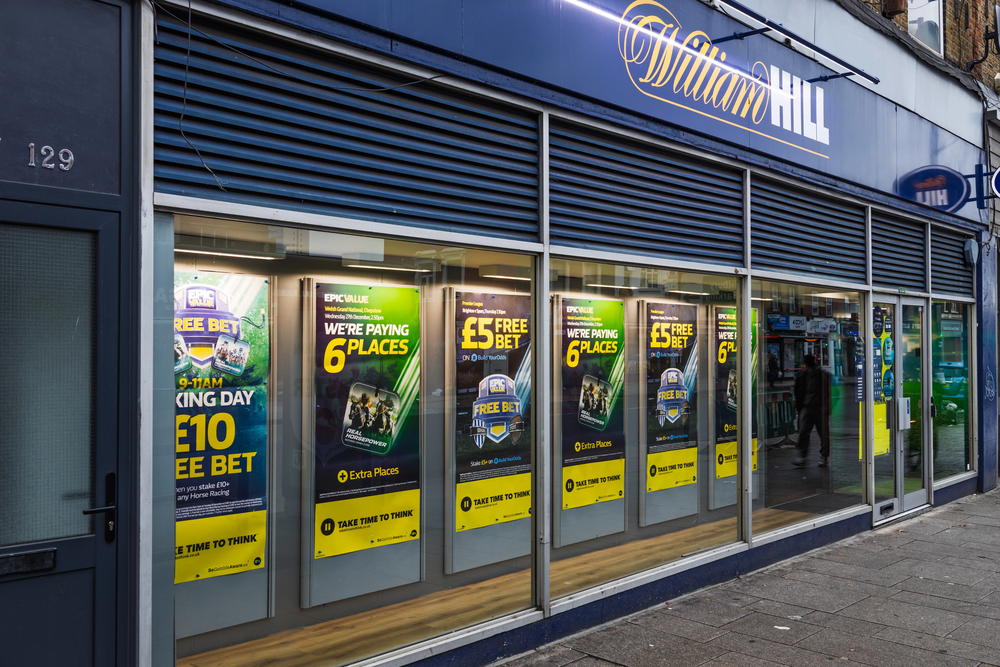We’ve all seen them across our shop-deprived streets from William Hill to Ladbrokes — those bet shops with their attention grabbing signs, and popping up on our latest iPhones promising a speedy win or a free £5 bet. Yet despite all that, we hardly stop to think about what this sprawling industry really does to our towns, and ourselves. Isn’t it time we had a proper chat about how gambling shapes our lives and exactly how big is the UK betting market?
Betting is a huge industry for the UK
Between April 2023 and March 2024, all those betting operators pocketed just over £15 billion after paying winners. Even if you take national lotteries out of the mix, they still raked in about £11.5 billion from shops, bingo halls, casinos, and online sites like Bet365. And how about online? Nearly £7 billion — up a hefty seven percent from the year before — as more of us tap screens instead of stepping through shop doors. Those numbers aren’t just your there or thereabouts stats — they echo through our counties, our pubs, and our bank accounts every single day. You can find UK betting companies here.
Providing Jobs to the UK
On the radio and on news portal sites, we get told that betting shops keep small high streets alive. That may be true. Especially where other stores have closed. In a town of roughly 4,000 people, that one shop could be the only place with steady foot traffic, keeping two or three peeps on the payroll — maybe a cashier, someone who tidies up, and an evening security guard. Behind the scenes, there are developers writing code for apps, customer-service teams handling complaints, and suppliers restocking snack machines.
But let’s be honest — while that shop keeps someone’s lights on, it’s also where someone else might be making a risky bet they can’t afford. It’s a strange irony, sadly. Jobs, and personal income on one side, and a real potential for hardship on the other.
Then there’s what lands in the Treasury’s coffers. In fact, around £654 million in betting duties for 2023–24, a bit more than the year before. Some of that funds the Gambling Commission’s work; some goes toward counselling services and helplines for folks who find themselves in too deep. And if this money dries up, say, because fewer people are betting, local charities and those key mental health services feel the pinch straight away. Not helping the male population of the UK.
So our elected politicians walk a tightrope: they want stable revenue and jobs, but they also can’t ignore that about 2.5 percent of adults, around 1.3 million people, struggle with harmful gambling.
Importance of Quality Regulation
In recent years, age checks have tightened up. If you’re wagering big sums, you might face affordability tests. Those glamorous TV adverts featuring footballers or racing stars are under more scrutiny. But for every rule, there’s a workaround. I’ve known individuals who chased losses online so relentlessly that nobody noticed their debts until they were massive. We all shrug and say, “It’s just a bit of fun,” until the next bill lands.
Online & Physical
Here’s something we found quite interesting in 2023 to 24, online operators pulled in around £6.9 billion, while physical venues those actual shops and big halls took home about £4.6 billion. Our punters on their phones; older regulars still like to stroll into a shop, exchange banter with the staff, soak in the buzz. Yet, those live odds terminals, events, and café-style betting lounges prove that traditional shops aren’t going to fade away. Let’s get this straight, they both help each other, making their audience that much larger.
Betting Growth in the UK
By 2030, online gambling could be growing at about 12% a year. That’s no small number. Imagine sleeker apps, maybe even VR casinos you can visit from your couch. On the high street, venues might transform into proper social hubs — Guiness on tap next to electronic roulette, live streams of big matches, esports lounges where you can grab a snack and check the odds.
Regulators will push back with tougher affordability checks, lower maximum stakes, and stricter limits on bonus deals. It’ll be a constant tug-of-war between growth and harm reduction.

